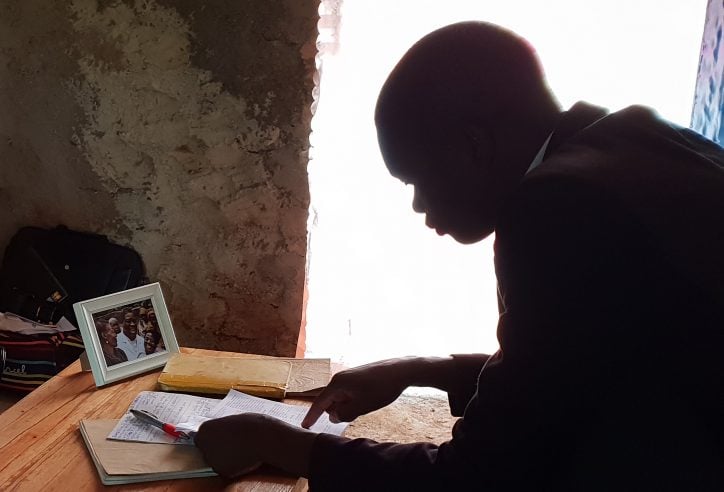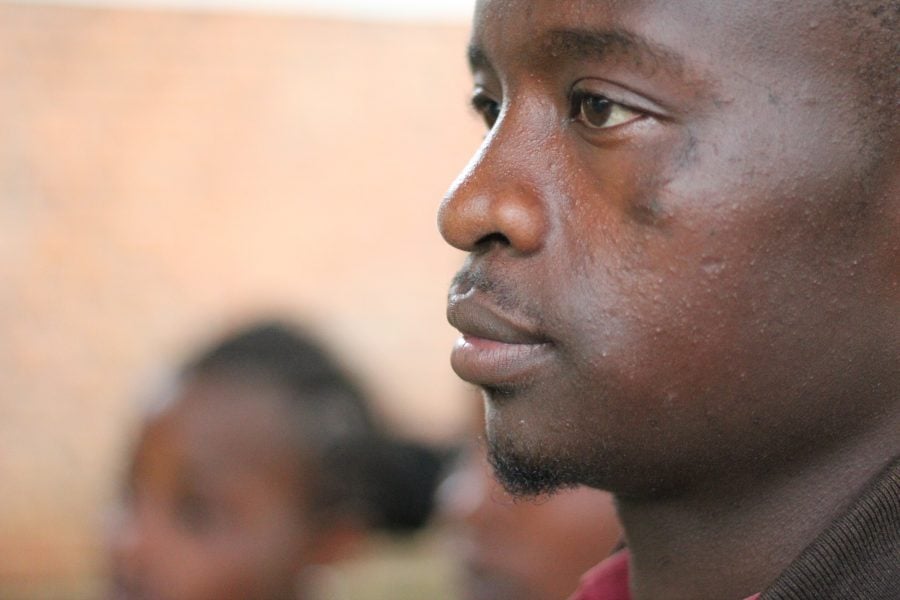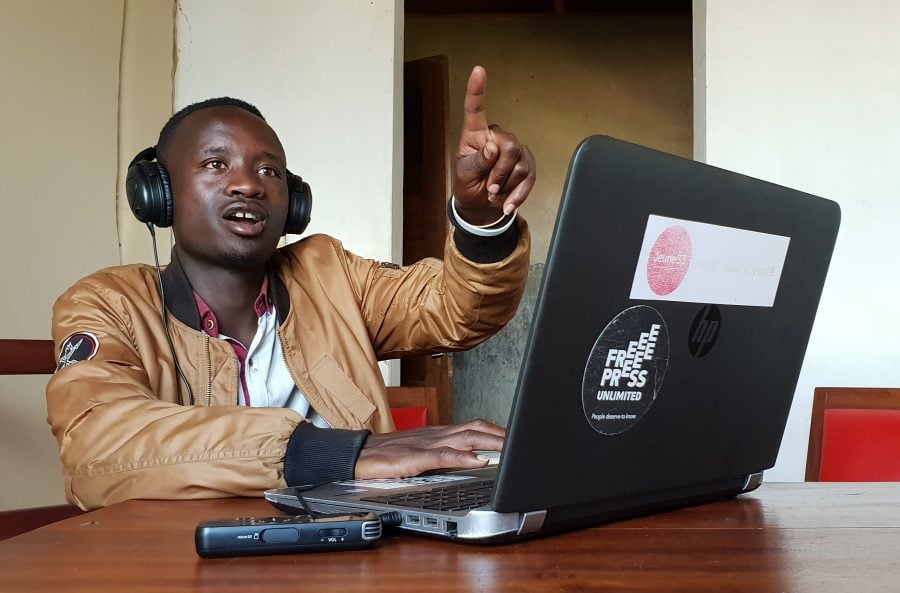Young people in the east of the Democratic Republic of Congo exposed a network of fake preachers that sexually abused underage churchgoers. After nearly 2 years of activism, the perpetrators were suspended and their informal houses of worship closed. One has been imprisoned, but the battle for justice goes on.

It seemed a nauseating rumour: men acting as preachers and forcing young girls to have intercourse in the name of preparing them for their baptism.
Unfortunately, there is truth to that horror tale. Brave and impressive sleuthing by Congolese youths lifted the veil on a network of so-called preachers in South Kivu province who took advantage of their spiritual leadership to sexually abuse minors.
“After we heard stories from a number of girls, we started investigating. Of the 19 teenage pregnancies in the area, 5 were linked directly to the preachers.”
Josué, one of the JeuneS3 youths
The young women and men who uncovered the abuse and took action are part of Jeune S3, a program for young people run by young people, which Cordaid coordinates. S3 stands for Santé, Sexualité et Securité – health, sexuality, and security. Jeune S3 youths advocate for sexual health and their peers’ rights across 4 countries, including the DRC. Armed with expertise, a sense of justice, and determination, they combat teenage pregnancy, sexual violence, and deceitful taboos, and stand up for the rights of young people to make well-informed decisions about their own sexuality.
Knocking on doors for almost 2 years
The sexual abuse by fake preachers in the Kabare area of South Kivu appears to have been brought to an end. The so-called spiritual leaders certainly won’t be able to go about their ways unhindered any longer.
After the Jeune S3 youths unmasked the offenders and their private churches and brought the case to the attention of political and religious authorities, the impostors were suspended and their informal houses of worship were closed. One of the perpetrators confessed guilt and is currently serving time in prison.

But the road to justice was long and has not come to an end. For almost two years, the Jeune S3 youths moved heaven and earth to get to this point. It all started in January 2019, when rumors circulated about the preachers in Katana (a town in Kabare). “After we heard stories from a number of girls, we started investigating”, says Josué, one of the JeuneS3 youth ambassadors. “Of the 19 teenage pregnancies in the area, five were linked directly to the preachers.”
Preparing for Baptism
It goes without saying that the was very sensitive. The youths had to watch their step continuously, working carefully. “Collecting witness testimony was very precarious,” says Jean-Aimé, former Jeune S3 ambassador, who was involved in the investigation. “In June 2019, one of the victims was prepared to share her story with us. She told us how the preacher raped her. Before he could baptize her, he forced her to have sex with him, so he could see if she was still a virgin, and thus respected God.”
The youths approached the judicial police based on her testimony. “The suspect confessed and was imprisoned,” notes Josué. “The important question now is what will happen to all the other offenders who abused young girls,” he continues.
Preachers investigate
Over the course of a year, the Jeune S3 youths continue their investigation, collecting testimony. In August 2020, they share evidence of the crimes with authorities, religious leaders, and health service providers. At first, it seems as if local church leaders would push for the prosecution of the perpetrators.
But months go by without any meaningful progress. “Despite overwhelming evidence of guilt, the preachers in Katana preferred to investigate the case themselves,” explains Jean-Aimé. After a long wait, the outcome of the investigation confirms what the youths had already uncovered.
Religious authorities then want to put an end to the abuse as quickly as possible. It and it also drags the Church through the dirt. Sexually abusive preachers not only destroy the lives of minors and their families and violate the law. They also violate all the tenets of the faith people thought they represented.
“We can’t prosecute the perpetrators ourselves. It’s up to the young victims to do that, together with their families. Most important for us is to support and guide victims through this process.”
Immaculée Mulamba, Health Expert at Cordaid
At the youths’ insistence, the religious leaders alert the region’s highest authority. Other civil society organizations join the cause like the Panzi Foundation set up by Nobel Peace Prize winner Denis Mukwege.
Corona throws a spanner in the works
At that precise moment, another opponent rears its head: COVID-19. In March 2020, the government in DRC declares a state of emergency after the appearance of the virus. Again, the case grinds to a halt.

The Jeune S3 youths don’t give up. They continue knocking on doors and urging local authorities to act. After which the most senior bureaucrat in Kabare takes action. He initiates an investigation into the allegations, which – again – confirms their story. Finally, on October 3rd, the administrateur de territoire of Kabare suspended the 12 preachers and closed the houses of worship that were involved in the abuse.
Among the suspended preachers are a number of women. The police enforce the decree and local radio stations discuss the case at length.
“They’re still around”
The young activists are happy with this victory, but the battle isn’t over. The crucial next step is prosecuting the rapists and bringing victims a measure of justice. “Some of the phony preachers are still around. Others have fled, fearing arrest and prosecution,” sighs Jean-Aimé.
That’s exactly what Jeune S3 youths do: armed with knowledge, facts, and a strong sense of justice, they combat the myths, taboos, and stigmas that are so welcome to malicious people who abuse their positions of power.
“We can’t prosecute the perpetrators ourselves. It’s up to the young victims to do that, together with their families,” says Dr. Immaculée Mulamba, Health Expert at Cordaid. “Most important for us is to support and guide victims through this process.”
Debunking myths and taboos is crucial
Pressing charges is a challenge for victims and their families. “Most of them feel dependent and even thankful towards people they have long seen as spiritual leaders. Sometimes they’re afraid to be ‘cursed’ if they take legal action against those leaders,” explains Dr. Mulamba.
But this is where youths can also make a difference. In fact, that’s exactly what the Jeune S3 volunteers do for their peers: armed with knowledge, facts, and a strong sense of justice, they combat the myths, taboos, and stigmas that are so welcome to people who abuse their positions of power. And as long as those malicious actors enjoy impunity, the struggle for justice continues.
Read more about the Jeune S3 programme:
